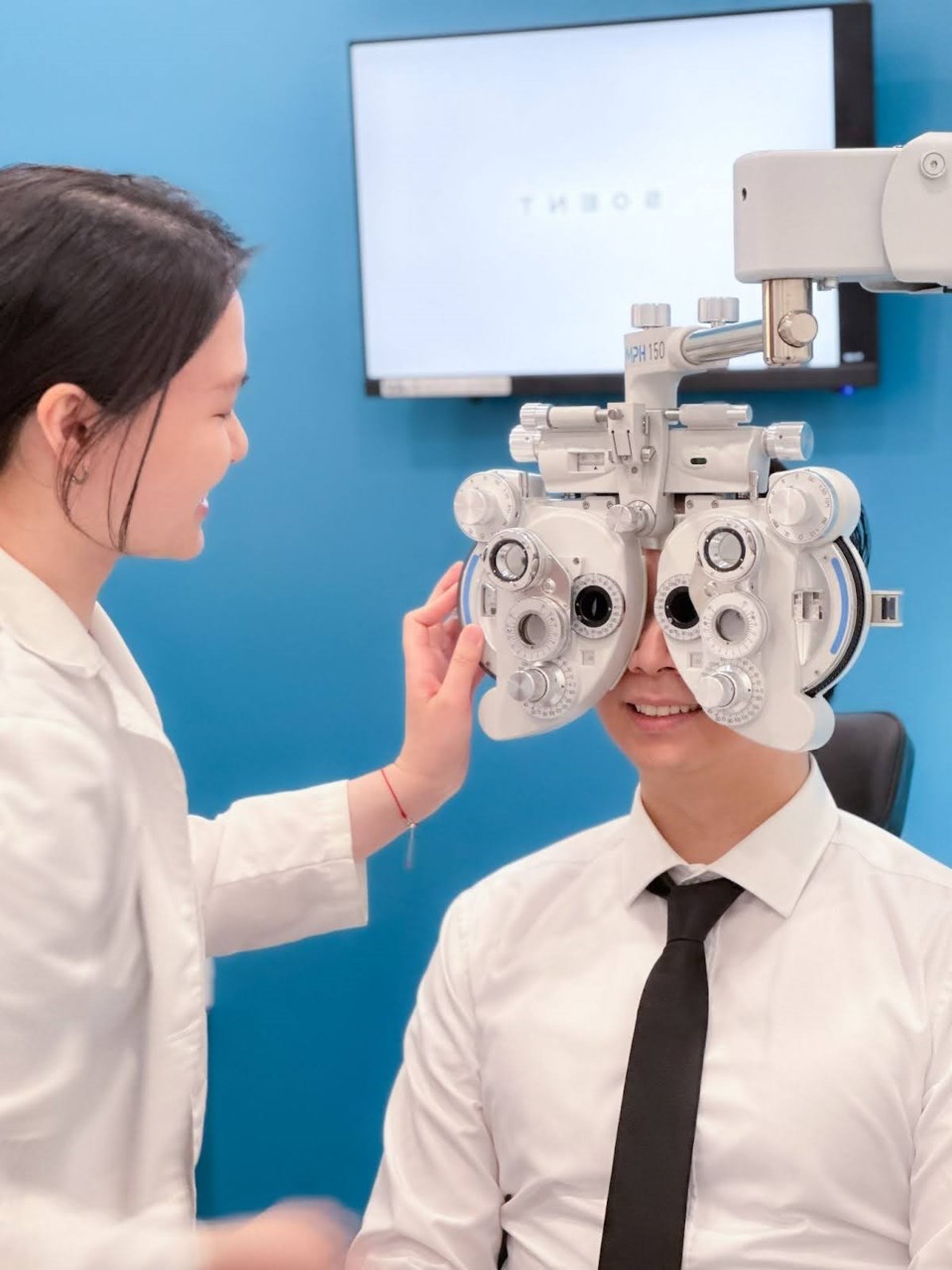The old saying goes that your eyes are a window to your soul.
Turns out, they can be even more revealing than that as a clinical examination of them can also help diagnose some specific health conditions, too.
And that’s a good reason to go see an optometrist, says Dr. Winnie Li, owner of EyeHaus Doctors of Optometry in New Westminster, who has a number of reasons why you should visit your optometrist.
“Seeing your optometrist is more than getting a new eyeglass prescription,” Li says. “The exam you undergo can help check whether you are at risk for or have other health conditions.”
Those can include:
- Diabetes
- Hypertension
- High Cholesterol
- Tumors
- Cancer
- Autoimmune disorders
- Thyroid disorders
Screening for more eye-specific conditions include binocular vision dysfunction — when your eyes don’t work together — and glaucoma and macular degeneration that can deteriorate in your field of vision peripherally or centrally.
“We also check the front of your eyes for any potential problems such as dryness, allergies, and infection,” Li says, adding many people tend to live with the condition and the headaches, itchiness and general discomfort it can bring.
So, what is it about an eye exam that can help tell your optometrist there might be some underlying health issues beyond the need for a potential adjustment to your eyeglass lens prescription?

In the case of uncontrolled diabetes and hypertension, Li says a leading indicator can be bleeding in the retina — the light-sensitive layer of tissue lining the inside of your eyes.
Autoimmune diseases such as multiple sclerosis, rheumatoid arthritis, and thyroid disease are also detectable. These diseases can manifest by causing inflammation in different parts of the eyes, including the ocular muscles, sclera or iris.
In some cases, Li says she may connect patients to the appropriate specialists for further investigation if needed, such as the ophthalmologist, dermatologist, and endocrinologist.
Another, more eye-related condition is the development of cataracts, which occurs when the natural lens in the eye becomes cloudy as we age.
“Many people are surprised they have cataracts even though they see fine. It is normal to develop it later in life and important to monitor it as it develops,” Li says. In Canada, currently, more than 2.5 million people live with cataracts. That number is expected to rise to five million by 2031 as the population ages.
But even with all of those compelling reasons to visit your optometrist, many people still hesitate in booking an appointment.
For young children, getting an early look at their eye health helps define for them what their “normal vision” constitutes. And if they have been struggling with a condition such as myopia (near-sightedness) early detection provides a clear reference point for treatment to begin..
“Their parents may not be aware of any problems because their child hasn’t complained they have problems seeing things day to day. Often, it is not until the teachers at school raise concern that parents understand something is wrong, at which point, glasses are hard to avoid,” Li says.
Financial constraints can also be a deterrent for adult patients holding off seeing their optometrist.
But Li says the provincial government can provide access for screening and provision of corrective eyeglasses through many programs, such as the coverage through the Ministry of Social Development and Poverty Reduction.
And one visit to EyeHaus Doctors of Optometry can deal with all of your needs.
“We are a one-stop shop,” Li says, adding that thanks to in-house examinations and a dedicated laboratory, Eyehaus ensures a prompt diagnosis and provides a tailored set of eyeglasses, ensuring patients experience improved vision at the earliest convenience.
“Many times, we can have it all done in an hour, if we have the lenses you require in stock,” Li says.
Book your appointment online at your convenience by visiting eyehaus.ca and explore the variety of brands they carry or call EyeHaus at 778.358.3999.



